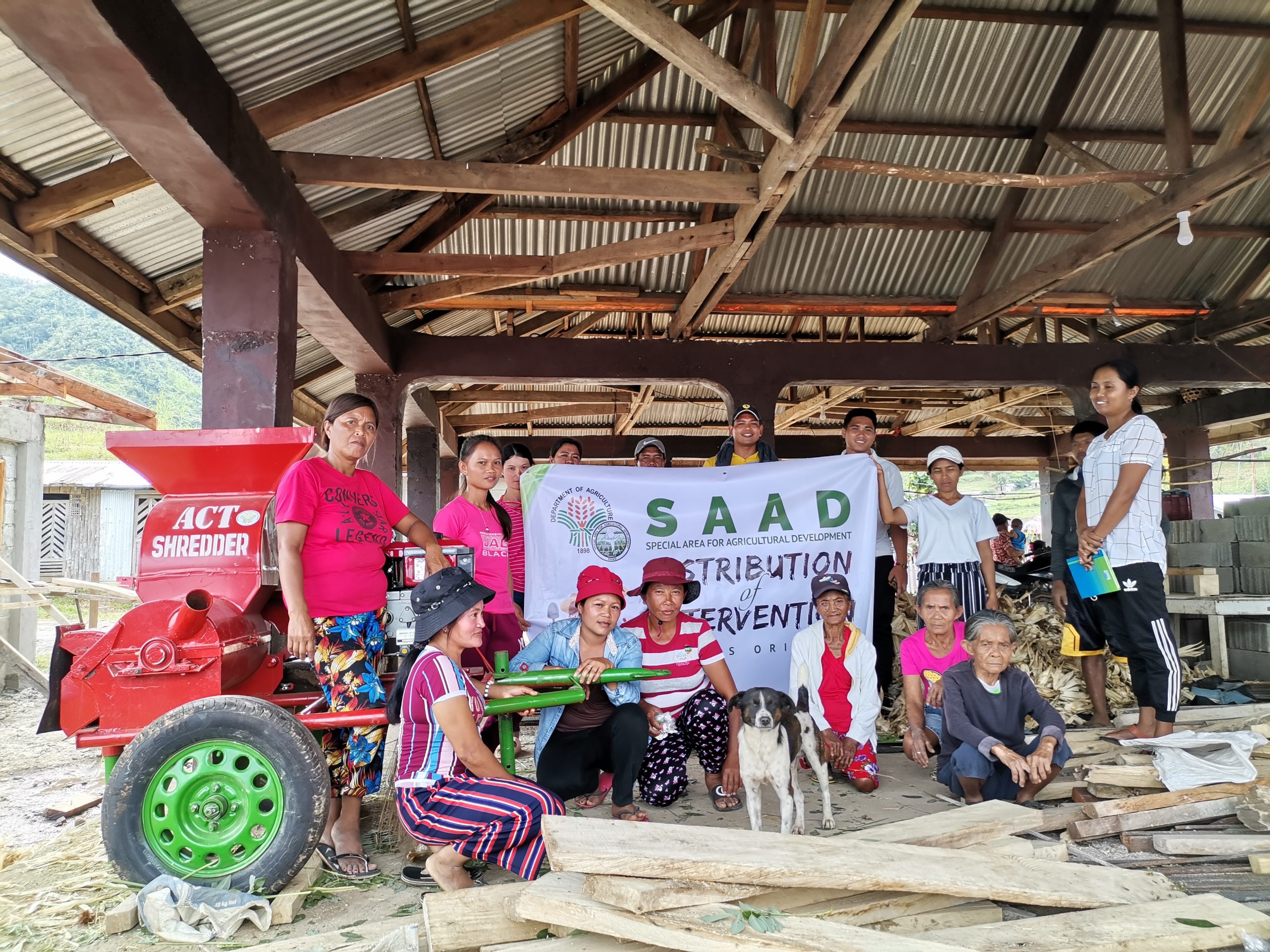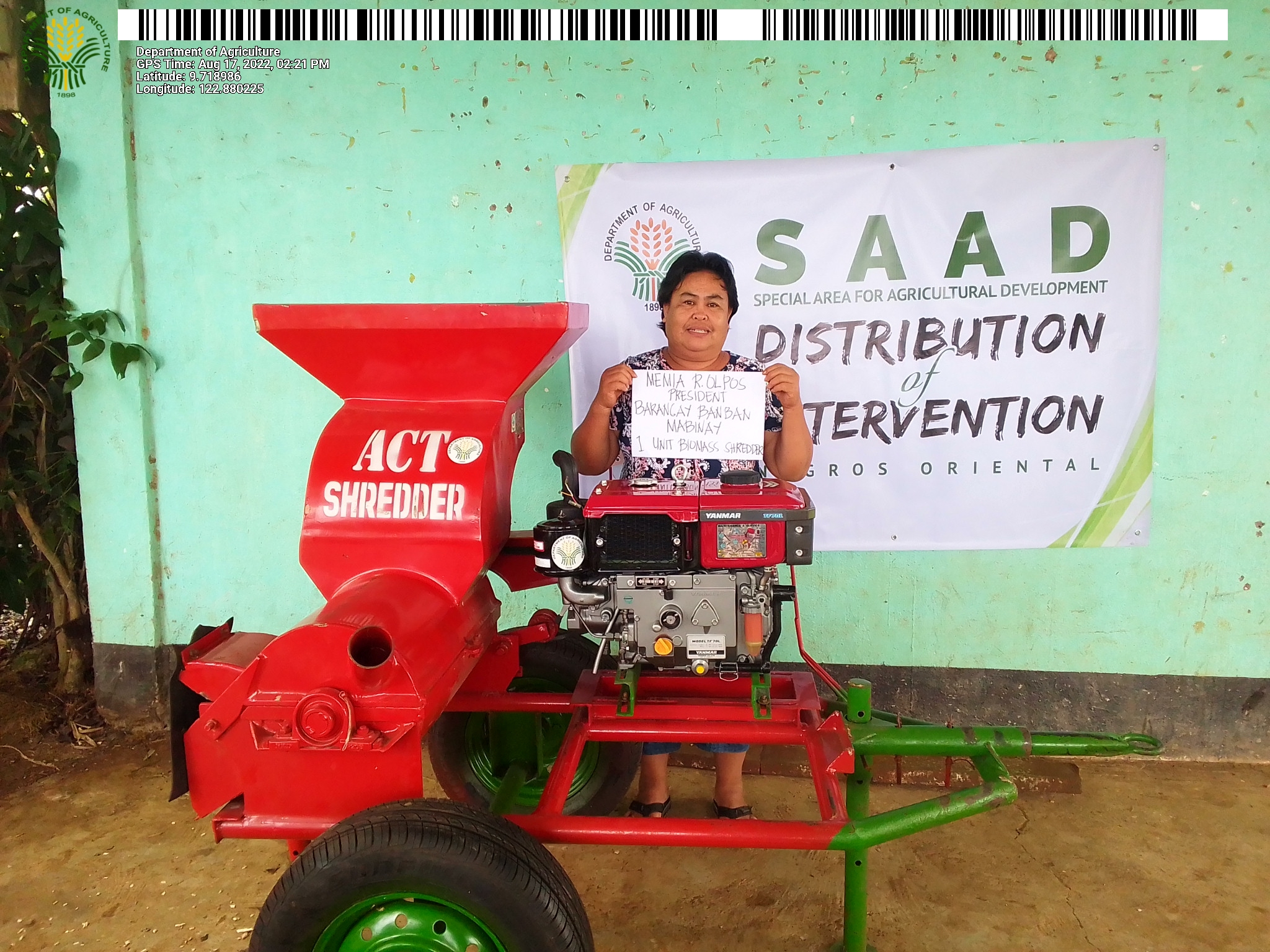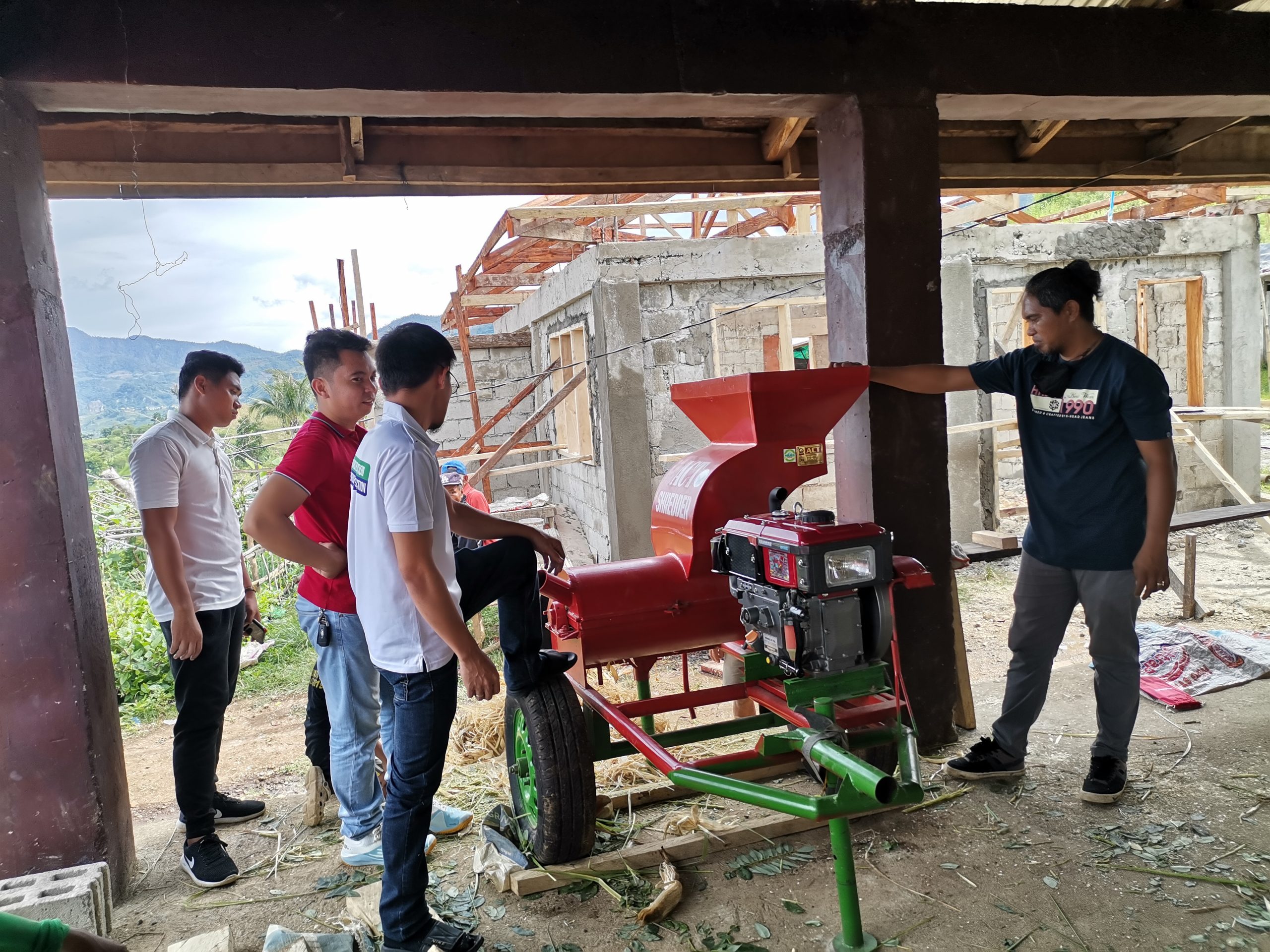NEGROS ORIENTAL, November 1, 2022 – The Department of Agriculture- Special Area for Agricultural Development (DA-SAAD) Program provided five (5) units of biomass shredder to five (5) farmers associations (FAs) in Negros Oriental to mitigate livestock stunted weight growth.
The FAs are currently venturing into Integrated Cattle Fattening Production and Vermicomposting after their inclusion into the SAAD Program in 2021. The Cattle Fattening project was provided in 2021 and the Biomass shredding machines were awarded later this August of 2022 due to the necessity to provide alternative options to feed the stocks.
Table 1. FA recipients of Biomass Shredder unit

Beneficiaries financially struggle to buy commercial feeds for the cattle once they maxed out the supply feed from the SAAD, they grapple to maintain the appropriate diet of cattle mainly because of the cost of feeds, and instead, they rely on fresh forages.
In response, the shredder units were provided to the FAs to manufacture cheaper ruminant feeds for the cattle and aid to the poor weight growth of the cattle. Concurrently, the same machine will be utilized for the Vermicomposting process.
The inspection of the units was led by the Regional Agricultural Engineering Division (RAED), with the supplier and the association members, ensuring that the machines work properly.
Napier grass, coconut husks, madre de cacao leaves, and corn husks were loaded into the machine to test its main functions, as well as the throttle level and overall condition of the machine.
Beneficiaries rebound
Four (4) among the five (5) FAs sold their received interventions six (6) months into the project, for a cheap price due to the stunted weight condition of the cattle.
Beneficially, said FAs generated adequate profit to purchase a new batch of cattle for the initial beneficiaries and even add new ones to the potential recipients.
The FAs garnered a total of Php 1.2M which they used to buy a new batch of stocks. Purchasing a total of 73 cattle, the FAs have enough animals to disperse to 59 beneficiaries and 14 additional beneficiaries.
Background
The five (5) FAs are all Department of Labor and Employment (DOLE) registered, some were as early as 2009 and the latest was in 2015. Majority of the FA members are engaged in livestock raising and crop production such as rice, corn, vegetables, and cacao.
Meanwhile, the 59 select beneficiaries of the project were chosen based on the SAAD Program guidelines and selected from the lists provided by the local government units of each municipality. They were shortlisted, which entails LGU recommendations, and have not received any similar interventions from DA in the last two (2) years. Table 2 shows the interventions received by the 5 FAs.
Table 2. FY 2022 Support to Cattle Fattening Project and Vermicast Production inputs

Beating soaring production cost organically
Aside from producing alternative ruminant feeds, FAs also venture into vermicomposting to maximize utilization of the shredders.
Vermicomposting is the process of cultivating a certain species of worm called African Nightcrawler (ANC). Vermicast is the end-product of the mentioned process. A clew of ANC breaks down organic output such as rotten fruits, leaves, etc., then later produces worm casting or humus that will eventually be mixed with the soil as an organic conditioner.
Cultivating ANC requires a substrate bed to grow, and practically the collected manure from the cattle fattening production is an option to be utilized.
Farmers have seen that if they employ vermicomposting on their crops, they can save on their farm operation costs by reducing buying commercial fertilizers such as Urea which costs around Php 2,550.00 per bag, and Complete costing around Php 2,200.00 per bag. In comparison, vermicast only costs Php 500.00 per bag, which tantamounts to over 80% difference in prices.
The project will also provide an additional income source for the five (5) FAs as the potential market value of vermicast ranges from Php 500.00 to Php 600.00 per 25 kilograms (kg) sack.
The groups are grateful with the interventions they received from the Program. Jovy A. Bongcawil, President of Talaon Forestland Farmers Association expressed her gratitude to the program. “Nagpasalamat kog dako gikan sa ahensya sa DA pinaagi sa SAAD nga naghatag ug mga maayong programa ilabi na sa amoang assosasyon diri sa Talaon, sa suporta nga amoang nadawat, sa shredder nga makahatag ug dugang nga kaayohan alang sa amoang pag panguma. Dugang usab sa vermicomposting supporta kini sa abuno nga organic alang sa amoang mga tanom,”she said.
(Thank you so much to the Department of Agriculture through the Special Area for Agricultural Development Program for providing our association here in Talaon with the support, and shredder that we can benefit from, and the vermicomposting project in which we can produce organic fertilizer for our crops.)
Collectively partaking into sustained livelihood
Members of each FA are currently constructing their shared shed for vermicomposting with a 32 m2 dimension and eight (8) inches tall pit. For starters, the FAs will put in 5kg of ANC which is expected to produce 105 bags of vermicast per year.
To sustain the project, the groups crafted an internal agreement where for every harvest, a 20% monetary share of the total income will be used for maintenance and operation.
All members (SAAD beneficiaries and non-SAAD beneficiaries) have a routinary assignment, from collecting substrate (rice straw, cattle manure, corn residue, forage, and sawdust) to preparing food for the ANC, machinery maintenance, monitoring, harvesting, and marketing the product (vermicast).
Moreover, the income from the vermicast production will be used to fund the expansion of the shed and the daily needs of their members. ###
Writer: Jolina T. Daño, DA-SAAD Region 7 Information Officer
Sources:
Randy P. Carpio – Area Coordinator for Basay, Bayawan City and Tanjay City
Fredelin Z. Rodriguez – SAAD Focal Person in Mabinay
Jocelyn O. Tanghiyan – Area Coordinator for Zamboanguita, Mabinay and Dauin
Ronnel G. Barillo – Agricultural Technologist
Rexter Lagaylay – Agriculture Technician
Maricor Esparar – Agriculture Technician
Via Marie S. Quibot –Area Coordinator for La Libertad, Manjuyod and Sibulan




Comments (0)